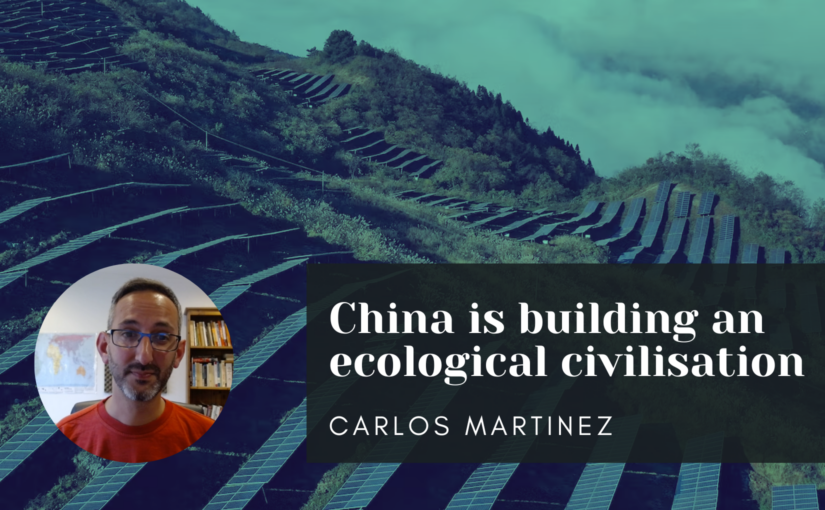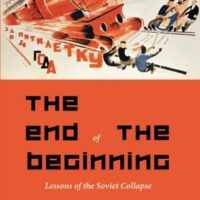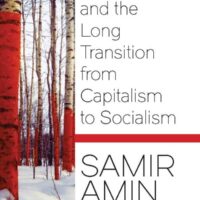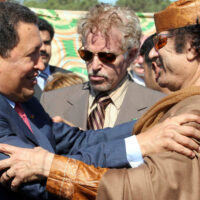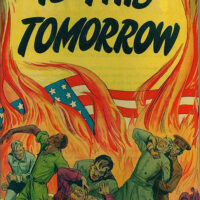This is an expanded version of a speech given by Carlos Martinez at the event ‘STRIKE THE EMPIRE BACK: legacies and examples of liberation from neo-colonialism and white supremacy’
As far as most people are concerned, ‘ideology’ is a term of abuse, an insult you fling around: we accuse people of being “too ideological”, of being bookworms, of dividing people with “isms and schisms”, of “thinking too much” (I have to say I’ve never in my life met anyone who actually thinks too much, but I’ve met plenty of people who don’t think enough!).
The Cult of Activism
There is this view that ideology divides us, that it gets in the way of working together, that it’s not really relevant, and that we need to focus purely on ‘action’, on practical activity, on campaigning. We don’t have need to inform our activism with analysis and understanding, we need to do like Nike: just do it. Pickets are good, placards are good, campaigns are good, petitions are good, demonstrations are good, fundraising is good, concerts are good; debate, books, history, study, analysis: not so much. Inasmuch as we need to occasionally need to spread ideas, we do it in cute 140-character slogans on Twitter, or Lord of the Rings memes on Instagram.
In part, this is a reaction to what’s called “ivory tower syndrome” – academics and intellectuals, sitting up in their ivory towers, writing beautiful words but having neither the intention nor the ability to put theory into practice. And even the beautiful ideas the generate are very flawed because they’re so divorced from reality and from the masses.
That is a genuine problem. However, as the saying goes, you don’t throw the baby out with the bathwater. If I bite into an over-ripe strawberry and it tastes rotten, I don’t conclude from that experience that I’ll never eat a strawberry again. If there are ivory tower ideologues who are over-ripe and rotten, let’s ignore them and develop the ideology we need, the ideology that serves us.
The state of the movement
As it stands, we as a movement (inasmuch as there is a ‘movement’ – here I am using it as a general label for the various individuals and groups who oppose the status quo and who want to build an alternative) are quite active. There’s quite of lot of activism around, and yet, if we’re honest, we’re getting nowhere.
We’re no more united than we ever were – in fact we’re less united. We’re no more effective than we ever were – in fact we’re less effective. We have meetings, demonstrations, campaigns, pickets and so on, but almost never win anything, and we don’t really play to win; we’re just out there flying the flag.
And yet oppressed and working class people are under attack. In the course of the last three decades, the ruling class have managed to smash the majority of the unions and the community organisations. They’ve privatised everything. They’ve gone to war, killing our brothers and sisters in Yugoslavia, Iraq, Afghanistan, Libya in the hundreds of thousands. Benefits are cut, jobs disappear, wages are reduced, zero-hour contracts are introduced, bedroom taxes are introduced, banks are bailed out, student fees keep on rising, people are thrown in prison for protesting. Racism, xenophobia, sexism, homophobia are still prevalent with the dominant culture.
Meanwhile our political representation gets worse and worse, as the whole mainstream spectrum shifts to the right – as evidenced by UKIP’s success at the European election, and by the increasingly blurred lines between Tory and Labour politics.
As for the ruling class, the elite, the government, the police, the corporations, the 1% – they know what situation we’re in and therefore they know they can get away with pretty much anything they want. They know we are not in a position to fight the fight. That’s one of the main reasons we have whatever democratic rights we do have; that’s one of the main reasons they let us have the vote; that’s one of the main reasons they allow some level of freedom of speech: because they know full well we won’t use it to achieve anything meaningful.
Our ‘activism’ hasn’t prevented any of this. In some situations it’s even made it worse. To give a (thankfully) extreme example: when NATO was gearing up for its regime change operation against Libya, a sovereign African state, quite a few well-known activists thought the best thing to do would be to occupy Saif Gaddafi’s house in London, thereby totally playing into the mainstream agenda of demonising a state that the west was about to bomb into the stone age. What a situation, where you have courageous, passionate, righteous people – activists, people who are supposed to be on our side – and the media is able to play them like puppets!
Ideology is nothing to be scared of
If we don’t want to be played like puppets, we need ideology, we need understanding. It’s nothing to be afraid of. An ideology is simply a system of ideas – a set of beliefs, goals and strategies in relation to society. I think this scary word, ideology, can be summed up by three simple questions:
-
What is the current situation of society?
-
What changes do we want to achieve?
-
How do we go about creating those changes?
If you look around the world, and you look into history, you see that every movement that ever achieved anything meaningful is or was built on some kind of ideology. For example:
-
Malcolm X had an ideology, which one could argue was a mix of black nationalism, anti-imperialism, global south unity, socialism and pan-africanism, with Islam providing a moral-spiritual basis.
-
The Black Panthers had an ideology, based in Marxism, Maoism, black nationalism.
-
Closer to home, Sinn Fein and the IRA – who fought the British state to a stalemate (I wish we could do that!) – have an ideology, grounded in Irish nationalism, anti-imperialism and socialism.
-
The leaders of the Iranian revolution had and have an ideology, based in radical Islam, anti-imperialism, anti-zionism and orientation towards the poor. You can say something similar about Hezbollah, the only fighting force in the world to have defeated the Israeli army in battle (#JustSayin).
-
The liberation struggles in Vietnam, South Africa, Angola, Mozambique, Ghana, Kenya, Guinea Bissau, Zimbabwe, Palestine, Namibia, Algeria, Korea; the revolutions in Cuba, China, Russia, Grenada, Nicaragua: they all had/have an ideology, a system of ideas/beliefs/goals/strategies that people unite around.
These ideologies have plenty in common, particularly in terms of opposition to imperialism, opposition to colonialism, opposition to racism, and a general orientation in favour of the poor and marginalised. However, none of them are identical, and each reflects to some degree the history, traditions, culture and conditions of the people involved.
The President of the Cuban Parliament made an interesting self-criticism recently, when discussing the variations within the revolutionary process in Latin America:
“What characterises Latin America at the present moment is the fact that a number of countries, each in its own way, are constructing their own versions of socialism. For a long while now, one of the fundamental errors of socialist and revolutionary movements has been the belief that a socialist model exists. In reality, we should not be talking about socialism, but rather about socialisms in the plural. There is no socialism that is similar to another. As Mariátegui said, socialism is a ‘heroic creation’. If socialism is to be created, it must respond to realities, motivations, cultures, situations, contexts, all of which are objectives that are different from each other, not identical.”
There are theories that can point us in the right direction; there is history to learn from; but there’s no cookie-cutter that we can pick up to get rid of capitalism and imperialism.
What about us?
We too need an ideology. We need to work out a shared belief system, an agreed set of goals, an agreed set of strategies, that we can unite around and work together to create meaningful change. We need to answer those three questions: where are we at? Where do we need to be? How do we get there?
We will not agree on everything. There are a whole host of important issues that we have to be willing to agree to differ on. But I am convinced that there is space for a common platform.
Just look at the other side. The enemy has ideology. The elite, the rulers of society, the ultra-rich, the government, the state – they have an ideology. It’s imperialism and neoliberalism: the most brutal, the most harsh, the most ruthless form of capitalism, promoting nothing less than ‘freedom’ – total freedom for the rich to get ever richer.
Plus they’re so generous, they realise that the masses need an ideology too, so they create a ready-made ideology for us! The ideology they give us is: consumerism, individualism, diversions, divisions, racism, sexism, homophobia, selfies, twerking, porn, Call of Duty…
And we congratulate ourselves on all this freedom and democracy we’ve got! “It’s a free country”, we say. No! It’s not freedom, it’s not democracy. It’s bread and circuses. Give the masses cheap food and cheap entertainment, keep them divided, and you’ve got them under your control.
Minimum platform
What type of ideology do we need? Good question :-)
That’s the long conversation that we need to continue, in a spirit of inclusiveness, openness, comradeship, creativity and generosity. It’s going to take a while.
To me, in today’s world, perhaps the most relevant examples to look at can be found in Latin America, in particular in terms of the legacy of Hugo Chávez, may he rest in peace.
What does Chávez represent? The essence of ‘Chavismo’, I believe, is: 1) creative, non-dogmatic, up-to-date socialism; 2) consistent, militant anti-imperialism.
Socialism – there’s another scary word that isn’t really that scary. What is the socialism that is being pursued in Venezuela (and Cuba, and Nicaragua, and elsewhere)?
- Adopting policies that favour the poor: pursuing redistributive economics and social programmes that aim to permanently raise the status and living conditions of those at the bottom of society.
- Promoting the interests of the indigenous, the African, the worker, the woman. Protecting freedom of worship. Addressing discrimination on every dimension, in the interests of building unity and justice.
- Attempting to break the power of the old elite, the rich, the right, who have held society in their grip for so many centuries.
- Constructing a popular democracy, a state that is “for us, by us”.
As for Chávez’s legacy of anti-imperialism, that means consistently uniting with the widest possible forces against the main enemy. Chávez built solid, meaningful alliances with a very diverse range of states and movements, from Cuba to Brazil to China to Russia, Syria, Iran, Zimbabwe, South Africa, Belarus, Gaddafi’s Libya, Angola, DPR Korea, Nicaragua, Ecuador, Bolivia, and so on.
He wasn’t a gullible liberal or a radical fashionista; he didn’t disown his allies just because the western press was demonising them. He kept his eye on the prize of ending imperialist domination for once and for all and constructing a new, multipolar world where countries can develop in peace.
He always said that one should unite with anyone who had even the slightest chance of joining the fight against imperialism. I think that idea gives as a decent clue as to how we should move forward.

